Institutions
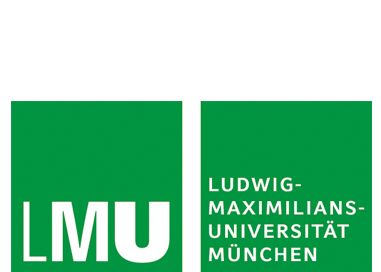
-
- Institute of Communication Studies and Media Research (IfKW)
- Ludwig Maximilian University is one of Germany’s leading research universities. LMU’s Institute of Communication Studies and Media Research is the largest in its field in Germany, and one of the foremost centers for social scientific communication research in Europe. The Institute comprises a variety of scholars experienced in addressing the various kinds of influences that shape the production and dissemination of mass media contents. At LMU, Romy Fröhlich serves as the coordinator for the INFOCORE consortium. One research group led by Romy Fröhlich addresses INFOCORE’s WP6, which investigates the role of strategic communication in the conflict news dissemination process. Specifically, it analyzes how conflict interpretations advanced by various actors inside and outside conflict areas are able to shape the public debate. A second research groupd led by Thomas Hanitzsch addresses INFOCORE’s WP1, which investigates the journalistic production of news in conflict. Specifically, it analyzes the conditions shaping and constraining the work of professional journalists in reporting on violent conflict, and their strategies for dealing with these. LMU also leads INFOCORE’s fieldwork within Germany.

-
- Department of European and International Studies
- King’s College London is one of the top 20 universities in the world (2013 QS international world rankings) and a member of the Russell Group comprising the UK’s foremost research-led institutions. The hosting Department of European & International Studies (EIS) is a founding member of the EU-funded Jean Monnet Centre of Excellence with a research cluster specializing in European foreign and security policy. King’s College London has one of the largest contingents of researchers in politics and international relations in the UK, with notable strengths in international security, European politics, and political economy. EIS has close links to the Department of War Studies, a world leader in conflict, security, and war analysis with over 50 full-time research staff and experts in project-related areas, for instance, causes of war, peacebuilding, intelligence. Christoph Meyer acts as Principal Investigator for KCL and Leader for Workpackage 4, which looks at the role of NGOs as sources of media coverage and as media-like actors in their own right. A Research Fellow will work with Professor Meyer on the project, particularly with regard to the extensive empirical work. KCL will also lead on understanding the role of the new media in open source intelligence.
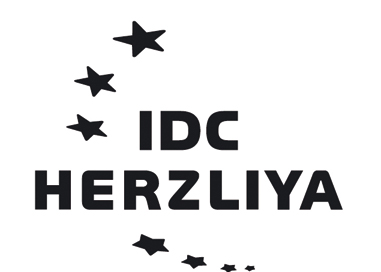
-
- Sammy Ofer School of Communication
- IDC is Israel’s first privately funded, fully accredited higher education institution with a broad range of under-graduate and graduate programs. Since its founding in 1994, IDC has been an academic avant-garde. IDC maintains a faculty of 75 permanent academic staff, over 100 external international adjunct faculty, a select student body of 5,500, six schools, 12 research centers and institutes, and more. As suggested by its name (Interdisciplinary) and its location (Israel) IDC takes interdisciplinary research very seriously and has a wealth of scholars studying the conflict from a wide variety of academic perspectives. Professor Gadi Wolfsfeld, from IDC, will be leading Work Package 2 which focuses on political actors and officials in their double role as sources/advocates and audiences/users. Given the centrality of the individuals and the institutions they represent to the conflicts, their actions and policies have a major impact on all of the other dimensions being studied by INFOCORE. IDC (together with the Hebrew University of Jerusalem) is responsible for taking the lead in studying the Israeli/Palestinian conflict.
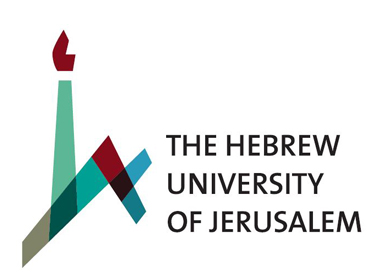
-
- Department of Journalism and Communciation
- The Hebrew University of Jerusalem is Israel’s leading university and is ranked among the top academic and research institutions worldwide. The Department of Communication and Journalism at The Hebrew University is the oldest and most distinguished department of its kind in Israel. The department is home to several internationally renowned media and conflict scholars, and has close ties to other university centers that focus on conflict and peace studies, such as the Truman Research Institute for the Advancement of Peace and the Swiss Center for Conflict Research Management and Resolution. The INFOCORE research group at the Hebrew University, led by Keren Tenenboim-Weinblatt, addresses INFOCORE’s WP7, which investigates the role of journalistic transformation in the conflict news dissemination process. Specifically, it analyzes how specific information, interpretations, and agendas are selected, transformed, and disseminated in the media, and how they evolve over time. In cooperation with IDC, the Hebrew University leads INFOCORE’s work on the Middle Eastern conflict cases.
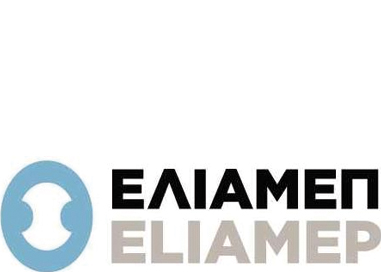
-
The Hellenic Foundation of European & Foreign Policy (ELIAMEP)
- The Hellenic Foundation for European and Foreign Policy (ELIAMEP) is an independent, non-profit research and training institute, established in Athens, Greece. Its mission is to contribute to the development of evidence-based responses to major European and foreign policy challenges via research and policy recommendations to policy makers, academics, and the public. Its holds ample expertise in a wide range of aspects of the European integration process, notably, migration/multiculturalism; democracy, human rights; civic participation; political/socio-economic implications of environmental issues; security; international relations; and conflict resolution (special focus on Southeastern Europe, Middle East, and the Mediterranean). ELIAMEP holds significant research experience in issues related to conflict and the media and has participated in over 10 EU-funded projects funded in the last decade, nearly half of which it coordinated. At ELIAMEP, Dimitra Dimitrakopoulou leads the research group that addresses INFOCORE’s WP5, which investigates the role of social media as an alternative channel of information dissemination and analyzes journalists’ and political actors’ interactions on/with social media.
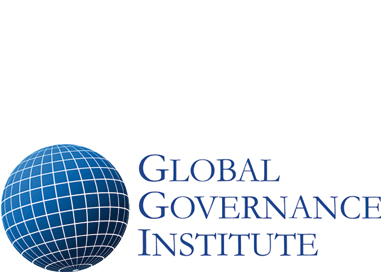
-
- The Global Governance Institute (GGI) is an independent, non-profit think-tank, based in Brussels. It combines the expertise of senior policy makers with the analysis of scholars from the world’s leading academic institutions to provide global insights, cutting-edge research, and innovative advice in the fields of peace and security, economic policy, global justice, and forward studies. George Terzis is leading the administration and coordination of WP9. Coordinating INFOCORE’s dissemination activities, including the organization of workshops, seminars, conferences, etc. (with associated stakeholders) and the dissemination of direct communication media (WP9).
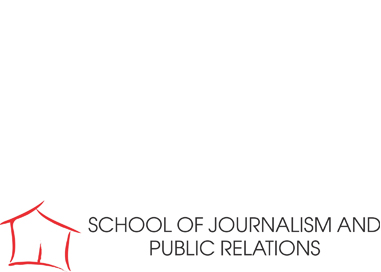
-
- The School of Journalism and Public Relations (SJPR) is a non-profit higher education institution with a mission to increase the quality of Journalism education in the country. It offers BA programs in Journalism and Corporate Communications. The SJPR is the founder of the Institute for Communication Studies (IKS) an institution that offers Master level programs in Media Management, Multimedia and Management of Strategic Communications. Starting from June 2011, the SJPR holds the UNESCO CHAIR in Media, Dialogue and Mutual Understanding which is an integrated program of education, research, training, information and publishing activities in the fields of media, journalism and communication studies with a strong emphasis on intercultural communication and diversity reporting. The SJPR and IKS unite prominent scholars and researchers in various research fields, such as sociology of mass communication, political science, journalism studies, peace studies, nationalism studies etc. At SJPR Snezana Trpevska has a leading role in the coordination of the INFOCORE WP3 together with Universite Libre De Bruxxelles (ULB). The research group led by Trpevska will be analyzing the different roles that lay publics play in the production and interpretation of conflict news. Trpevska will also coordinate activities regarding the case studies of Macedonia and Kosovo.
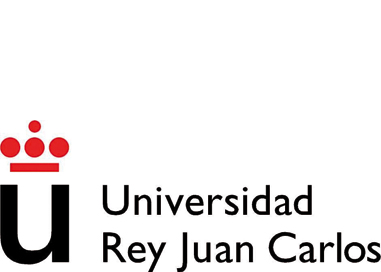
-
- Department of Communication Science II
- The University Rey Juan Carlos (URJC, Madrid, Spain), with 32,858 students, holds the second-biggest Faculty of Communication in Spain in terms of both number of students (5,100) and scholars (250). Created in 1996, it is one of the youngest public universities in the country and the youngest among the six public universities in the Madrid region. The Department of Communication Sciences II (Faculty of Communication) is building a strong profile for internationally collaborative research in Political Communication and Journalism. Prof. Dr. Rosa Berganza is the Principal Investigator of Work Package 8 “Reception of News” at INFOCORE project. The overall objective of WP8 is to analyze how evidential claims, frames, and agendas in the news coverage are received and re-used by political actors in the political discourse, depending on various contextual factors.
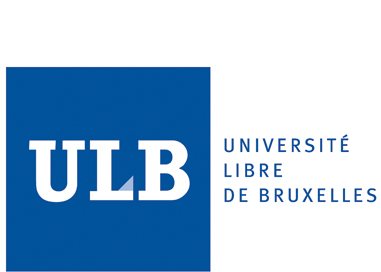
-
- Research Center in Information and Communication
- Université Libre de Bruxelles (ULB) is one of the largest and most prestigious research universities in Belgium, with a student population of 20,000 and more than 1,600 PhDs in progress. Within the institution, the ReSIC (Research Centre in Information and Communication) was created in 2009, and covers a wide variety of research topics such as mass media ; corporate communication, public relations and marketing ; digital information and data preservation, collection and transmission ; as well as semiotics of performing arts, with a focus on reception and audiences. ReSIC gathers a good number of Ph.D. students implementing research on the African continent, and more specifically the Great Lakes region. ULB is renowned worldwide for its expertise in this specific area, including in the field of conflicts and peacebuilding. Marie-Soleil Frère is one of very few researchers who have focused on the role of media in various conflicts on the African continent. She will insure the administration and coordination of WP3 (analyzing the roles of lay publics in conflict news production and reception) with Snezana Trpevska, SJPR and will also be the lead on conflict cases in Burundi and Democratic Republic of Congo (DRC). The ULB research team will implement interviews with journalists, political leaders and NGOs in both countries and conduct focus group interviews (for WPs 1–4). It will also contribute to qualitative framing analysis of French-language contents (WPs 5–8)
